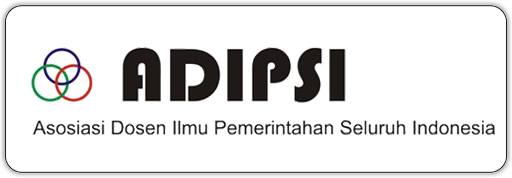Role Central-Local Governance in Stakeholder Analysis of Social Protection Policy in Tanjungpinang City
DOI:
https://doi.org/10.31629/kemudi.v8i1.5637Keywords:
Stakeholders, Social Policy Protection, Tanjungpinang CityAbstract
The Government continues to focus on handling Indonesia's pandemic and social protection programs. Limiting activities has succeeded in suppressing people's mobility, so daily Covid-19 cases are starting to decline. Various policy adjustments through the APBN instrument have also been carried out quickly to protect the public, handle the spread of Covid-19 and protect the community from a social and economic perspective. A research method is a qualitative approach using existing secondary data that the researcher considers relevant and essential to be studied and analyzed in depth. Secondary data has been processed first and only obtained by researchers from other sources as additional information. Some secondary data sources are books, journals, government publications, websites, or other supporting sources. The data analysis technique is analyzed using logic triangulation and investigator triangulation methods. The study results show that in Indonesia's social protection policies during the COVID-19 pandemic, there is a gap between the central Government and local governments. In addition, stakeholders focus on long-term programs prepared to overcome the social inequality in the people of Tanjungpinang city. In addition, researchers also found that the social protection policy programs carried out by stakeholders in the city of Tanjungpinang have met the community's needs during the covid 19 pandemic. Several innovations evidence this, and social protection policies are carried out by the central Government to local governments so that each stakeholder can implement these programs in the future.
Downloads
References
Askitas, N., Tatsiramos, K., & Verheyden, B. (2021). Estimating worldwide effects of non-pharmaceutical interventions on COVID-19 incidence and population mobility patterns using a multiple-event study. Scientific Reports, 11(1), 1–13. https://doi.org/10.1038/s41598-021-81442-x
Avato, J., Koettl, J., & Sabates-Wheeler, R. (2010). Social Security Regimes, Global Estimates, and Good Practices: The Status of Social Protection for International Migrants. World Development, 38(4), 455–466. https://doi.org/10.1016/J.WORLDDEV.2009.10.003
Barua, S. (2020). Understanding Coronanomics: The economic implications of the coronavirus (COVID-19) pandemic. Available at SSRN 3566477.
Drury, A. C., Krieckhaus, J., & Lusztig, M. (2006). Corruption, democracy, and economic growth. International Political Science Review, 27(2), 121–136. https://doi.org/10.1177/0192512106061423
Holzmann, R., & Jørgensen, S. (2001). Social risk management: A new conceptual framework for social protection, and beyond. International Tax and Public Finance, 8(4), 529–556. https://doi.org/10.1023/A:1011247814590/METRICS
Ishiwatari, M., Koike, T., Hiroki, K., Toda, T., & Katsube, T. (2020). Managing disasters amid COVID-19 pandemic: Approaches of response to flood disasters. Progress in Disaster Science, 6, 100096. https://doi.org/10.1016/j.pdisas.2020.100096
Johnston, M. P. (2014). Secondary Data Analysis: A Method of which the Time Has Come. Qualitative and Quantitative Methods in Libraries, 3(3), 619–626. http://www.qqml-journal.net/index.php/qqml/article/view/169
Kurnianingsih, F., Mahadiansar, M., & Setiawan, R. (2020). Implementation Processes of Social Protection Policy in Indonesia: Study of Prakerja Card Program. Journal Governance and Public Policy, 7(3), 247–259. https://doi.org/https://doi.org/10.18196/jgpp.731337
Marinetto, M. (2016). Who Wants to be an Active Citizen? Sociology, 37(1), 103–120. https://doi.org/10.1177/0038038503037001390
Nugroho, Y., & Negara, S. D. (2020). Urgent Need to Strengthen State Capacity: Learning from Indonesia’s COVID-19 Crisis. In Think-Asia. ISEAS Yusof Ishak Institute. https://thinkasia.org/handle/11540/12158
Olsen, W. (2004). Methodological triangulation and realist research. In Making realism work: realist social theory and empirical research (p. 197). Routledge.
Schorr, L. (2013). Common purpose: strengthening families and neighborhoods to rebuild america. Knopf Doubleday Publishing Group.
Setiawan, R., & Mahadiansar, M. (2020). Forecasting analysis: The Riau Islands local government role In Covid-19 disaster management. Jurnal Studi Pemerintahan, 11(3).https://doi.org/10.18196/jgp.113121
Suparman, N. (2021). Strategic priorities and accountability for allocating the state budget amid Covid-19 pandemic in Indonesia. Jurnal Perspektif Pembiayaan Dan Pembangunan Daerah, 9(1), 61-72. https://doi.org/10.22437/ppd.v9i1.11640
Xenia, S. (2014). Introduction :Social policy and social protection. In International Labour Organization(10th ed., Vol. 10). Universal Health Protection.
Downloads
Published
Issue
Section
License
Copyright (c) 2023 KEMUDI : Jurnal Ilmu Pemerintahan

This work is licensed under a Creative Commons Attribution-NonCommercial-ShareAlike 4.0 International License.













